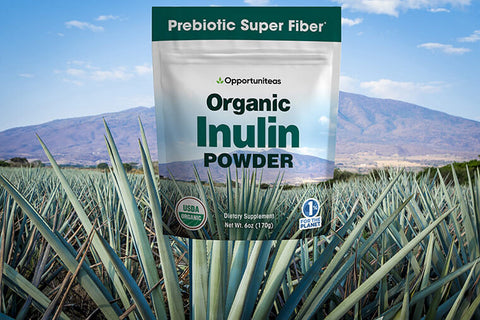
By Wen Liu • October 29, 2019
Digestive issues can be much more than an irritable inconvenience. Learn how to ease constipation with a few simple dietary changes.
Our digestive system is quite complex. Some of the most important organs work together to ensure that our body retains all the nutrients and gets rid of everything else. The malfunction of any of them can lead to issues like constipation.
Reduced bowel movement is a common occurrence that affects everyone at some point. But when it turns into chronic constipation, it can cause all sorts of health issues. It often leads to hemorrhoids, rectal bleeding, and fecal impaction. All of these can result in complications that negatively impact your health and overall quality of life.
Luckily, there’s no shortage of ways to relieve constipation. Before we get into them, let’s see what leads to it in the first place.
What Are the Causes of Constipation
As mentioned, there are many processes that impact digestive functions. As a result, it can be a bit hard to pinpoint the exact cause of constipation. However, the underlying cause is your intestines’ inability to ensure enough hydration for the stool to pass regularly. When the stool remains in the large intestine for too long, the colon absorbs the moisture and makes it hard and dry. This leads to you having to struggle to empty your bowels.
However, constipation isn’t a disease on its own – it’s a symptom.
In some cases, you might have a certain medical condition leads to constipation, such as irritable bowel syndrome. More commonly, constipation is a result of poor dietary and lifestyle choices. These include:
- ➡️ Not drinking enough water
- ➡️ Lack of exercise
- ➡️ Sudden lifestyle or routine changes
- ➡️ Not getting enough dietary fiber
It’s obvious that your diet plays a most important role in the body’s metabolism of food and digestive processes. Eating high-fiber foods is essential to making your stools pass smoothly.
Unfortunately, many people may not be aware that not all fiber is equal. Eating too much of the wrong kind can actually worsen the problem.
There are two types of fiber: soluble and insoluble. Soluble fiber actually slows down digestion to make sure that your body has enough time to absorb all the necessary nutrients. Insoluble fiber, on the other hand, adds bulk to the stool, making it easier to pass.
Like all healthy choices, it’s all about balance. Let’s go over the best foods that can make it happen.
The 8 Best Foods for Constipation
To deal with constipation, you’ll have to make a few positive lifestyle changes. Adding plenty of fiber and other nutrients to your diet is crucial. The good news is that this doesn’t require any restrictive diets that will leave you hungry all the time.
Instead, you’ll be able to add these foods to your everyday life without thinking too much about them. Let’s take a look at the most important ones.
1. Water

It may not be food, but water plays a vital role in getting rid of constipation. As shown above, the underlying cause of constipation is a lack of water. As the stool dries, it becomes harder to pass with ease. Not only can this lead to severe constipation, but it can also damage intestinal lining.
To stay hydrated, an average adult needs at least eight 8oz glasses of water. This isn’t a strict rule, so the actual amount of water can vary. If you feel constipated, the first thing you should do is to drink as much water as possible. This will help with the constipation and bring a plethora of health benefits besides. You’ll feel more energized and your body will be able to get rid of toxins much more effectively.
2. Apples
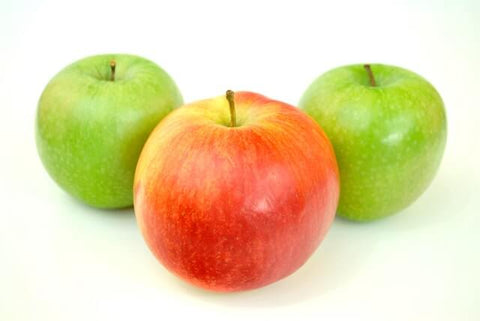
Apples are a very good source of fiber, both soluble and insoluble. A medium-sized apple has about 4.4 grams of fiber where 2.8g of which is insoluble. 1.2 grams of the soluble fiber comes in the form of pectin, which becomes fermented in the presence of the gut bacteria. This pulls water into your colon, allowing your stool to pass a lot more easily.
It’s important to eat apples with the skin. As you might imagine, it’s the skin that’s chock-full of fiber.
3. Greens
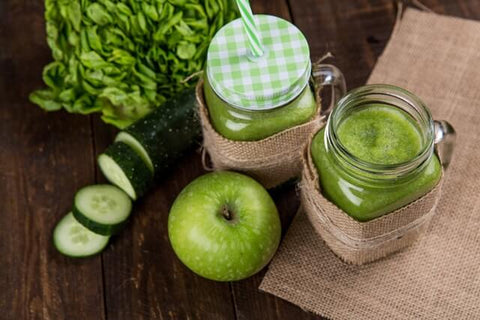
Green vegetables like Brussel sprouts, spinach, and broccoli are all great sources of high-quality fiber. For example, one cup of spinach contains 4.3 grams of fiber. This is around 17% of the recommended daily intake for adults. You can also add raw baby spinach to your meals for an extra fiber boost.
Aside from fiber, greens contain folate, vitamin K, and vitamin C. All of them add weight and bulk to your stools, making them much easier to pass. Not to mention that vitamin C is one of the most potent antioxidants, which helps to protect your body against oxidative stress. This results in better overall health and an enhanced immune system.
4. Rhubarb
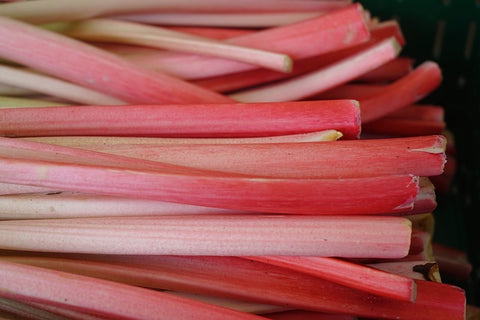
Aside from foods that promote gut health, you should consider those that have a laxative effect. And rhubarb is one of the best in this regard. It has plenty of sennoside A, popularly known as Senna, which is one of the best natural laxatives out there.
The best thing is that you can add rhubarb to your diet in many different ways. Most commonly, people slice and boil the stalks. However, you can also add it to pies, crumbles, and tarts. Lastly, you can add it to muesli and oatmeal for breakfast in order to start your day with plenty of fiber.
5. Chia Seeds
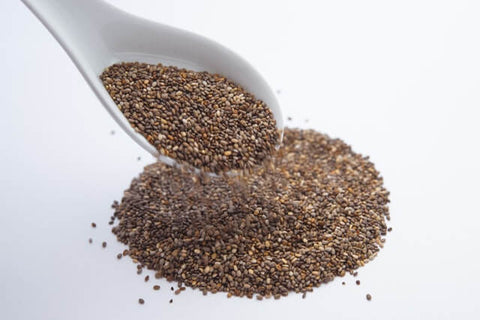
Chia seeds are very popular anti-constipation food. Not only can you add them to all sorts of dishes, but they’re also more effective at preventing constipation than most other foods.
This is because one ounce (equivalent to 28.3g) of chia seeds contains 10.6g of fiber, 85% of which is insoluble. When you add chia to water, it forms a gel-like substance that can soften stools when ingested. What’s more, chia can carry close to 12 times its weight in water, which lubricates your intestines and adds bulk to your stools.
6. Whole-Grain Rye Bread
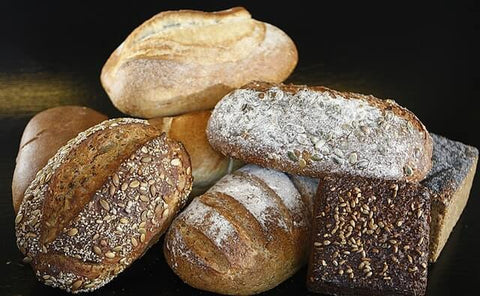
If your diet contains regular wheat bread, you’ll want to replace it with whole-grain rye. It’s much richer in insoluble fiber and can be more potent than many laxative foods.
Just two average slices contain 4g of fiber or about 15% of your recommended daily intake. Better yet, you can find certain kinds of rye bread that have even more fiber.
Rye bread is also much denser than wheat, so it can make you feel full more easily. It also has a much stronger flavor, which you can use to enrich other foods for constipation.
7. Yogurt
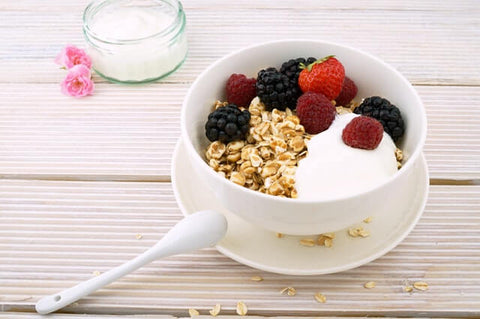
Most types of yogurt are rich in live bacterial cultures. Besides that, yogurt contains probiotics and feed the ‘good’ gut bacteria that support a healthy digestion system. This comes with a host of health benefits, including constipation relief.
Probiotics can help with both the speed and frequency of stools passing through the intestines. This helps your body get rid of toxins more regularly and promote healthy toilet habits.
8. Inulin
Speaking of probiotics, inulin is the most available. This class of natural polysaccharides can benefit those who suffer from almost any type of digestive issues. It’s an indigestible carbohydrate that provides a wealth of nutrients to the healthy gut bacteria. As a result, it increases their number and boosts digestive health.
Foods like artichokes, bananas, and leeks are great sources of inulin. However, they might not contain enough of it. This is why constipated people often go with organic inulin powder.
It adds bulk to your stools and increases the frequency of bowel movement. It also supports your gut microbiome and cleans your gut of toxins.
Just ask Sally, who reaped these and many other benefits. She said that adding inulin powder to her foods restored her healthy gut and prevented bloating. It also keeps her fuller for a longer time and even aids in weight loss.
So, if adding fiber-rich foods to your diet isn’t enough, or if you want quicker and more effective results, inulin powder can be a perfect choice.
Keep Your Gut Healthy
As you can see, there are many foods that can help you overcome constipation. Better yet, this is just the tip of the iceberg. There are a lot more fiber-rich foods that you can add to your diet.
Remember to eat enough fruits and vegetables and drink plenty of water. In many cases, this should be enough to soften your stools and ease your constipation. Maintaining these healthy habits will ensure that your gut remains healthy in the long run.
Of course, supplements are still a great idea for those who need faster relief. If you want to get back to your regular bowel movements in no time, make it a point to try our organic inulin powder.


